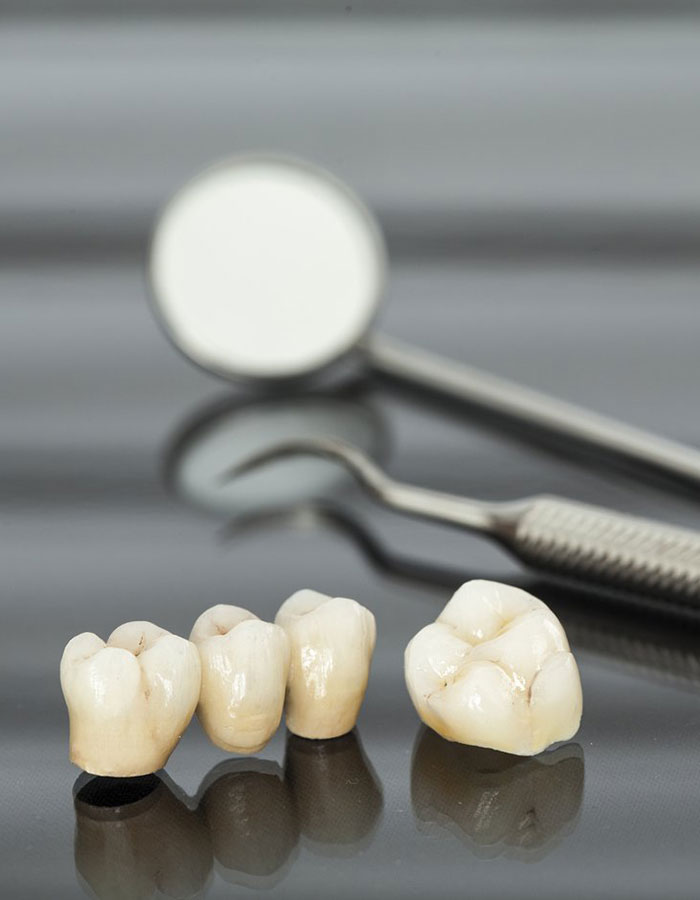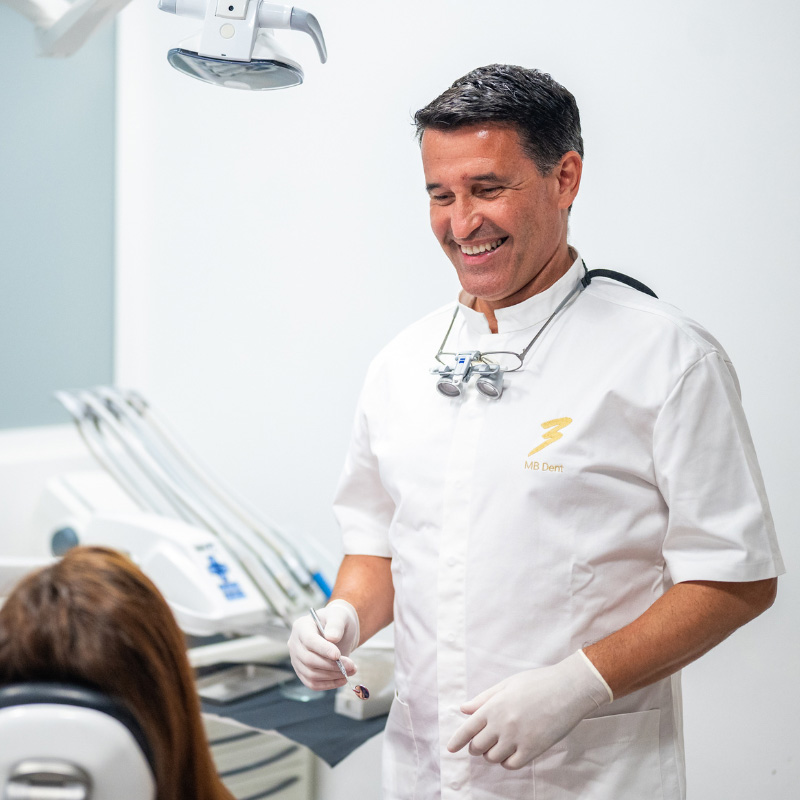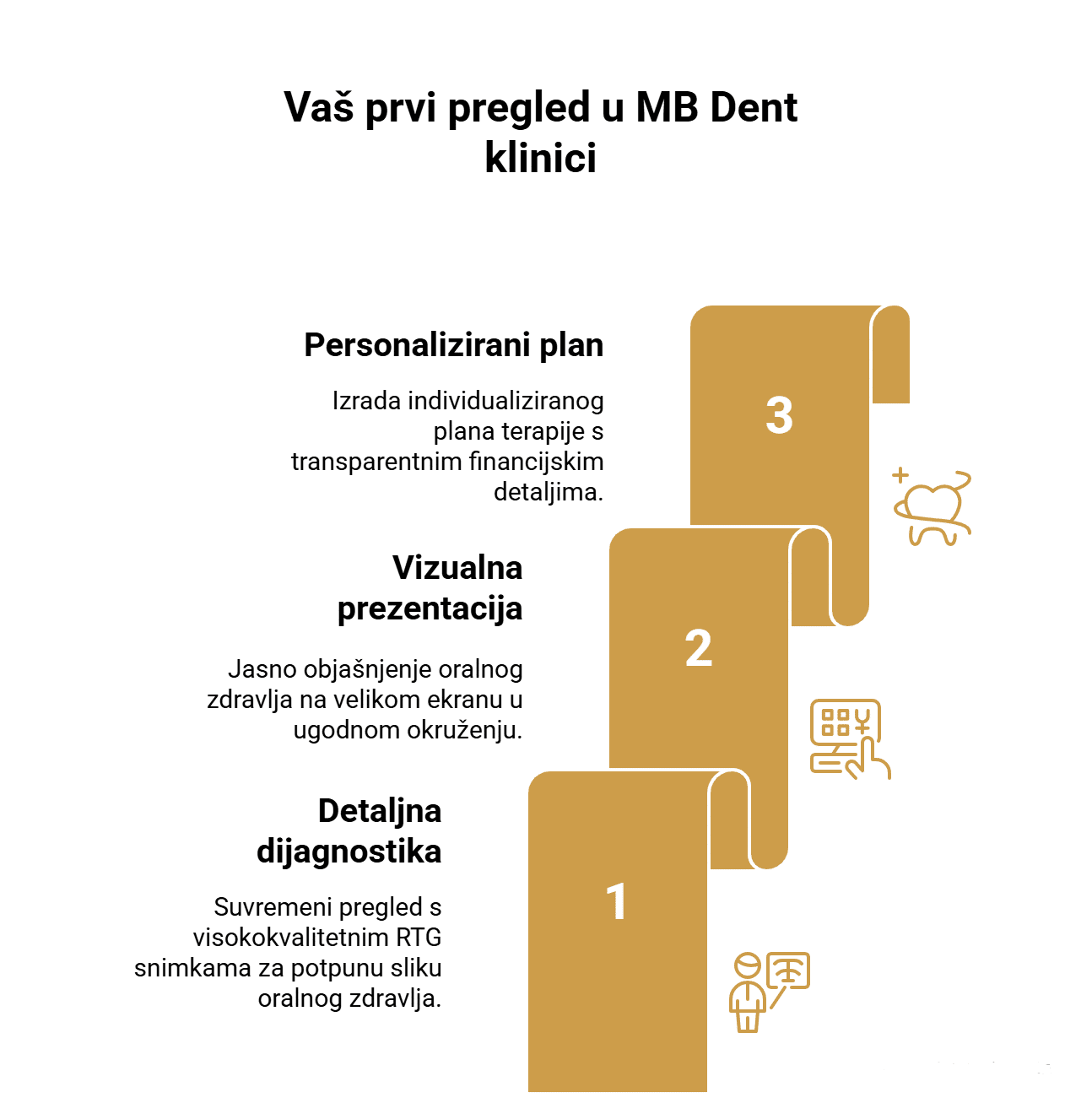A crown is a type of dental prosthesis that entirely covers a tooth or dental implant. Crowns are most commonly needed when extensive decay threatens the future health of the tooth, or when a significant portion of the tooth’s structure is missing. A crown can aesthetically correct the shape, color, and size of a tooth. They are attached to the tooth using dental cement. Although undeniably beneficial for the health of the tooth, the procedure and materials can be relatively expensive.
What are dental crowns?
Dental crowns are tooth-shaped caps that are placed over teeth or dental implants to restore their shape, size, strength, and improve their appearance. When cemented into place, crowns fully encase the entire visible portion of a tooth that lies at and above the gum line. Dental crowns are a dental treatment used for the protection, restoration, strengthening, or cosmetic correction of damaged or weakened teeth. Crowns are customized “caps” that are placed over prepared tooth tissue to protect the tooth or improve its appearance and function.
When are dental crowns used?
Dental crowns are a dental treatment used in various situations for protection, strengthening, or cosmetic correction of damaged teeth. Several situations in which dental crowns are used include:

- Damaged teeth: If a tooth is significantly damaged by decay, trauma, or enamel erosion, a dental crown can be placed to protect the remaining tooth and restore its function.
- Broken teeth: When a tooth is broken or cracked, a dental crown can be used to cover and protect the remaining tooth tissue.
- After root canal treatment: After endodontic (root canal) treatment, a tooth can become fragile and prone to cracking. A dental crown is placed to strengthen the tooth and prevent further damage.
- Cosmetic correction: Dental crowns are also used for cosmetic purposes, to correct the appearance of teeth that are disproportionate, discolored, or misshapen.
- Replacing missing teeth: Dental crowns can be part of a bridge used to replace one or more missing teeth.
- Implants: After placing a dental implant, a dental crown is placed on the implant to create a new, permanent tooth replacement.
- Orthodontic purposes: Sometimes, dental crowns are used as part of orthodontic treatment to provide additional support to teeth during movement.
It’s important to note that placing dental crowns involves preparing the tooth, taking an impression, and making a customized crown that will be permanently cemented onto the prepared tooth. The decision to place dental crowns is usually made in collaboration with a dentist who will assess your specific situation.
What types of dental crowns are there?
There are many types of dental crowns, and some of them include:
- Metal-ceramic crowns: Metal-ceramic crowns have a metal core that provides strength, with a ceramic surface that mimics the shape of the tooth. Due to the metal base, a black edge along the gum line may appear over time. They ensure durability, are functionally acceptable, and are financially more favorable than non-metal crowns, hence they are widely used today.
- Zirconium crowns: Made from zirconium dioxide, these crowns are extremely strong and resistant to breaking. They have a high aesthetic value as the color of zirconium can be adjusted to match the color of natural teeth.
- Ceramic crowns: These crowns are made entirely of ceramic. Ceramic crowns are more aesthetic compared to metal-ceramic crowns, making them an excellent choice for front teeth. Using this type of prosthetic replacement avoids the appearance of a black edge along the gum, which is characteristic of metal-ceramic crowns. They also involve a smaller volume of tooth grinding, thereby preserving the healthy tooth structure.
- Metal crowns: Made of metal, usually an alloy that may contain silver, palladium, gold, or other metals. Metal crowns are durable but are often used on less visible teeth due to aesthetic reasons.
- E-max crowns: These crowns are made from a strong monolithic ceramic material that provides excellent aesthetics and longevity.
- Composite crowns: These crowns are made from a composite material similar to that used for tooth filling. They are less durable than other types of crowns but are often used for temporary solutions or less demanding situations.
- Implant crowns: When dental implants are placed, crowns can be mounted on the implants to create a permanent replacement for missing teeth.
What is the procedure for installing dental crowns?
The installation of dental crowns is a process that consists of several steps to protect, strengthen, or cosmetically repair a tooth. The general procedure for installing dental crowns would consist of:
- Examination and diagnosis: The first step is a visit to the dentist for an examination and diagnosis. The dentist will assess the condition of the tooth, decide if a crown is necessary, and explain the different options.
- Tooth preparation: If it’s decided that a dental crown is needed, the tooth will first be prepared. This includes removing damaged tissue and shaping the tooth to create space for the crown. Sometimes it’s necessary to remove old fillings or crowns as well.
- Impression of the tooth: After preparing the tooth, the dentist will take an impression. This impression will be used to create a customized dental crown that will perfectly fit your tooth and oral cavity.
- Temporary crown: While the real crown is being made in the laboratory, a temporary crown may be placed to protect the prepared tooth and ensure normal function.
- Crown fabrication: In the laboratory, the tooth impression will be used to make a customized dental crown. The crown can be made from various materials, such as metal-ceramic, zirconium, or porcelain.
- Crown placement: When the real dental crown is ready, the temporary crown will be removed, and the new crown will be permanently placed on the prepared tooth. The dentist will check for proper fit and bite.
- Adjustment and finalization: The dentist will check how the new crown fits into your bite and how it looks in your mouth. If minor adjustments are needed, the dentist will make them to ensure proper function and aesthetics.
- Maintenance and care: After the crown is placed, it’s important to maintain regular oral hygiene and follow the dentist’s recommendations for crown care to ensure their longevity and functionality.
Are there any side effects of installing dental crowns?
Installing dental crowns is a safe dental procedure, but as with any surgical procedure, there are certain risks.
- Tooth sensitivity: After the placement of dental crowns, teeth may become sensitive to cold, heat, or sweetness. This sensitivity usually disappears within a few days or weeks.
- Gum infection or irritation: If the crown is not properly placed or if bacteria accumulate underneath it, this can lead to infection or irritation of the gums.
- Incorrect bite: An improperly placed crown can affect your bite, leading to discomfort while chewing or discomfort in the jaw.
- Crown damage: Crowns are made from various materials and, although sturdy, can be damaged if subjected to trauma or improper handling, such as chewing hard food, using teeth to open objects, etc.
- Gum sensitivity: After crown placement, the gums around the tooth may be sensitive, especially if tooth grinding was necessary.
- Color change: Crowns are stain-resistant, but in some cases, especially with metal-ceramic crowns, there can be a color change over time.
- Difficult cleaning: Crowns can make cleaning the spaces between teeth more difficult, so special attention to oral hygiene is crucial to prevent complications.
In consultation with the dentist, i.e., oral surgeon, you can learn about all the potential risks associated with this type of procedure.
Warranty
Lifetime warranty on all implants and superstructures against breakage.
Five years warranty on all metal-ceramic and zircon-ceramic crowns.
Five years warranty on all wironit dentures.

For any additional information, follow the blogs of the MB Dent clinic. If you would like more information from Dr. Matko Božić and his team, write to us at info@mbdent.com, WhatsApp 095 3634 337, or call us on the phone number 01 35 35 435 or mobile 095 3634 337.


